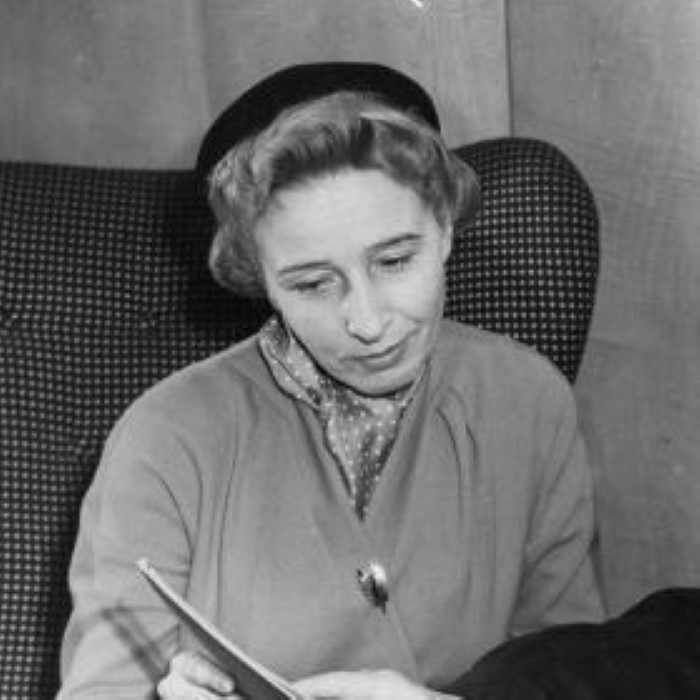Members
1 Female
Origin
 Belgian
Belgian
Genre
 Opera
Opera
Style
Classical
Mood
---
Born
1 Female
Origin
Genre
Style
Classical
Mood
---
Born
1911
Active ---
![]() 2000
2000
Cutout![]()
No loved tracks found...
Artist Biography
Available in:
Suzanne Danco (22 January 1911 – 10 August 2000), was a Belgian soprano whose career encompassed the opera stages of Europe from Mozart to 20th century roles, recitals, recordings of opera and songs, and later teaching.
Danco was born in Brussels and grew up in a Flemish background, although French was her native language. She studied piano, music history and singing at the Conservatoire Royal de Bruxelles, and in 1936 won a vocal competition in Vienna after which conductor Erich Kleiber recommended that she continue her studies in Prague with Fernando Carpi. Grove notes that "the unusual breadth of her culture was shown by her command of many different styles".
She appears to have made her concert debut in Italy in 1940, and her stage debut in 1941 at the Genoa Opera, singing Fiordiligi in Mozart's Così fan tutte. She appeared in most of the major opera houses in Europe through the 1940s and 1950s, including at La Scala (Jocasta in Oedipus rex by Stravinsky, and Ellen Orford in Peter Grimes), at the Teatro di San Carlo (Marie in Wozzeck which she also sang for the BBC in concert), at the Royal Opera House Covent Garden (Mimi in La bohème), and at the festivals of Glyndebourne and Aix-en-Provence (Fiordiligi and Donna Elvira). In 1951, she sang in Boston at a special Peabody Mason Concert series commemorating the Paris Bi-Millennial year. Although her operatic repertoire was not large, it was notable for its stylistic range, from Mozart roles (Fiordiligi, Anna, Elvira, Cherubino and the Countess) to modern works by Berg, Britten and Stravinsky. Her tone was described as cool, clear, and aristocratic, and well suited to French roles such as Mélisande in Pelléas et Mélisande (preserved in a Decca set of 1952 under Ansermet) and the Princess in Ravel's L'enfant et les sortilèges. Yet she also had success in some Italian works such as The Barber of Seville and La bohème.
She is also remembered as a recitalist and concert artist, again in a wide range of styles from Bach cantatas to song cycles by Britten and de Falla, but especially in the repertoire of French mélodies where her diction and command of style were heard to particular advantage.
Danco retired from singing in 1970 but remained active as a teacher, both at the Accademia Musicale Chigiana in Siena and as a regular visitor to the Britten-Pears School at Snape. She died at the age of 89 on 10 August 2000 at her home in Fiesole near Florence. Her villa there was named "Amarilli", after the song of that name by Caccini, which had brought her to the attention of record collectors in 1949.
Wide Thumb
Clearart
Fanart


Banner
User Comments
 No comments yet..
No comments yet..



